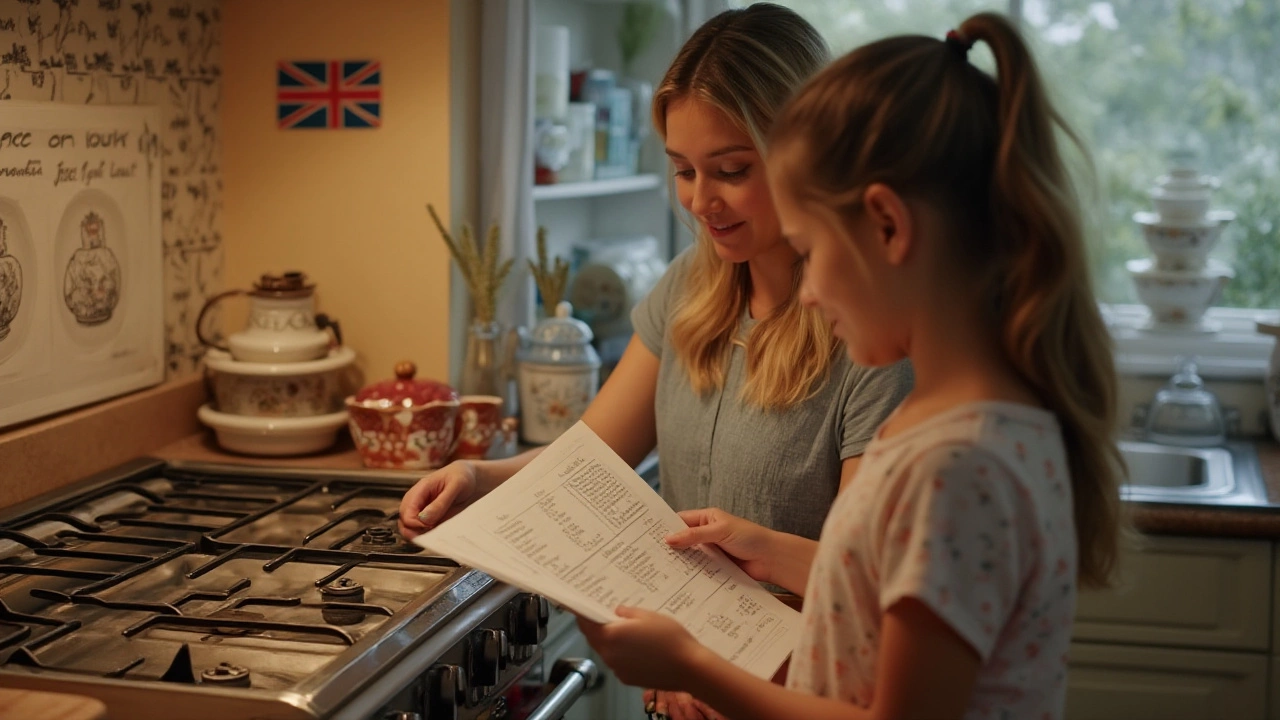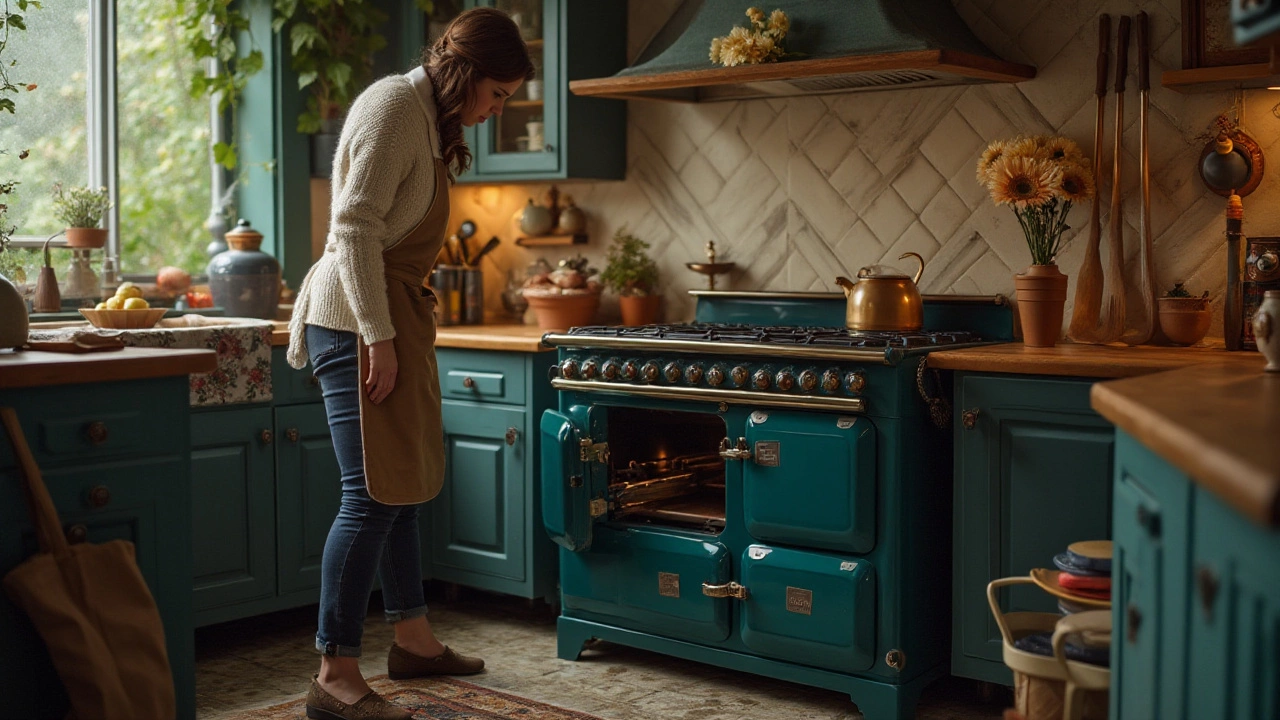Gas ovens, the cornerstone of many culinary creations, have an uncanny ability to serve up both everyday meals and gastronomic spectacles. Yet, like any reliable ally, they can falter. Repairing them might seem as intimidating as tackling a soufflé, but with some guidance, it's a feasible endeavor.
This article intends to demystify the concerns surrounding gas ovens and their repairability. We'll dive into the typical hiccups these appliances face and offer a roadmap to assess and tackle them. Moreover, we'll explore practical solutions you can try before reaching out for professional help, ensuring that your beloved kitchen companion is back in its prime.
- Common Gas Oven Problems
- Signs Your Gas Oven Needs Repair
- DIY Troubleshooting Tips
- When to Call a Professional
- Repair or Replace
Common Gas Oven Problems
Gas ovens, esteemed for their precision and ability to heat up swiftly, are no strangers to a range of issues that can leave even the most seasoned cooks in a bind. One frequent predicament involves the oven not heating. This particular issue often stems from a malfunctioning igniter. The igniter, which is a vital component in the appliance, must generate enough amperage to open the gas valve and ignite the burner. Over time, igniters can wear out and may fail to perform their job effectively, which means when you turn on your oven, you might be faced with a cold, stubborn cavity instead of a comforting glow. Another common gripe is when the oven produces uneven temperatures, leaving your culinary endeavors either undercooked or singed. This imbalance is often due to a faulty thermostat. The thermostat's job is to regulate the internal temperature, and if it's not operating correctly, your oven could either underperform or become a scorcher. Sometimes, calibrating the thermostat solves these fluctuations, but in other cases, a replacement might be necessary.
Another frequent issue with gas ovens is when the oven door won't shut completely. This could lead to inefficient cooking and a waste of energy. Often, this problem is caused by worn-out door hinges or seals. Over time, the seals might become brittle due to constant exposure to heat, losing their ability to provide an airtight seal. Replacing these components is typically a straightforward fix, but it requires some patience. There's also the dreaded gas smell that may linger when you least expect it. Although gas ovens are designed with safety in mind, leaks can occur and they pose serious hazards. Detecting this issue promptly is crucial. The smell of gas usually means there's a leak or a burner may not have been properly turned off, and immediate action is necessary. Consider reaching out to professionals to inspect gas connections if you suspect this type of issue.
Ventilation problems can also plague gas oven owners. Proper ventilation ensures that combustion gases are safely expelled from the house. If your oven has poor ventilation, you might experience an accumulation of moisture on surfaces, or worse, an odor of gas. Ventilation issues can sometimes be traced back to improper installation, but they can also develop over time as components wear out or become blocked with debris. In some cases, a qualified technician may need to inspect and rectify these issues. An alarming concern that some users face includes the oven not turning off at all. This is not only a frustrating problem but it poses a safety risk as well. Sometimes this issue arises from a faulty control board that fails to send signals effectively. In such scenarios, replacing the control board becomes a necessity.
According to Appliance Repair Experts, “Understanding the common problems with gas ovens can not only save you money but also keep your kitchen safe.”Neglecting these issues often leads to dire kitchen predicaments, especially when you are prepping for a big meal or hosting a dinner party.
Signs Your Gas Oven Needs Repair
The moment your beloved gas oven starts showing signs of distress, you might find yourself in a culinary bind, especially when the family is eagerly anticipating your famous roast or freshly baked bread. Recognizing these warning signs early can be the difference between a simple fix and a more serious issue. One of the most telling signs is uneven cooking. If you notice that one side of your food cooks faster than the other or that perfect golden crust is now elusive, it might be time to consider a repair. This could result from problems with the oven’s thermostat or heating elements, which are essential for maintaining the consistent heat distribution that’s needed for well-cooked meals.
Another red flag is when your gas oven takes longer than usual to preheat. You might be dealing with a malfunctioning igniter, which is critical for starting up the burner. This can become increasingly frustrating when you’re trying to prepare meals in a timely fashion. Moreover, if your food is overcooked or undercooked despite following recipes to the letter, it's not your culinary skills that have suddenly faltered. Instead, it might indicate issues with the oven's temperature regulation, resulting from a faulty thermostat that requires attention from someone who's experienced in gas appliance repair.
A report from Home Appliance Statistics in 2023 highlighted, "Nearly 30% of household fuel-related incidents involve gas appliances with minor faults often unnoticed until it's too late."
Strange noises like rattling, buzzing, or humming when your oven is in use or even at rest can point to a part that might be loosening or experiencing excessive wear, which requires immediate inspection. Sometimes, people might ignore these sounds as quirks of the appliance, but they are often precursors to more severe issues if left unattended. It's also wise to watch out for the smell of gas lingering around the oven, especially when it's in use, as this can be a sign of a gas leak. This is not just a matter of efficient cooking—it's crucial for safety. Gas leaks are hazardous and need urgent professional attention for repair.
Visual clues like the oven door not sealing properly, resulting in heat escaping, should not be overlooked. This not only affects cooking efficiency but also leads to increased energy consumption. It's crucial to address these signs promptly not just to restore the functional aspects of the oven but also to prevent energy wastage. If there's any build-up of soot or if you find that the flame is yellow instead of blue, these are indicators pointing towards combustion issues, which often require professional tuning to ensure your oven is operating safely and efficiently.
Lastly, paying attention to any unexpected increase in utility bills might also provide a clue. If your oven has any underlying faults, it might consume more energy than usual, leaving you with surprisingly higher gas bills. Regular maintenance and early repairs can prevent these financial burdens from creeping up. Diving into these signs with the right know-how or the assistance of a professional can keep your gas oven functioning at its best, ensuring every meal you create meets your expectations.

DIY Troubleshooting Tips
Repairing a gas oven on your own might sound daunting, but with a little patience and care, many common issues can be addressed without professional help. First, always prioritize safety. Before starting any repair, make sure that the gas oven is turned off and disconnected from any power sources. It's not just about avoiding gas leaks, but also ensuring that you don’t inadvertently shock yourself while diving into the intricacies of your appliance.
One common problem you might encounter is an oven that refuses to heat up properly. In such cases, the igniter could be the culprit. The igniter is responsible for drawing electrical current through the oven's safety valve to open it and ignite the gas. Check if it's glowing at all when you attempt to turn the oven on. If it glows weakly or doesn’t glow at all, it might need replacing. Many times, replacing a worn-out igniter can restore your oven's performance to its former glory.
If your issue is with the oven not staying lit, then the problem could be with the thermocouple, a safety device within older models, which senses the flame and shuts off the gas supply if no flame is detected. Ensuring it’s aligned correctly with the flame and checking for any obvious damages is a good place to start. A simple adjustment or replacement can return your oven to functioning properly.
Apart from these mechanical parts, gunk build-up can also cause the gas oven to malfunction. Over time, remnants from cooking, such as grease and spilled food, can block gas flow to the burners, affecting performance. An easy fix involves gently cleaning out any debris using a small brush and a vacuum, focusing on the burners and inside crevices. Many home cooks find that this simple cleaning task restores their oven’s heating efficiency.
"You don't have to be a professional to handle basic maintenance and troubleshooting," shares appliance technician Kim Olsen. "Regular cleaning and understanding the basic parts of your gas oven can save a lot of headaches—and money!"
For those more adventurous, a problematic thermostat can often be calibrated with a simple adjustment. Misaligned temperature settings can cause uneven baking. Typically, your oven’s manual will have guidelines on accessing the calibration settings. Always use an oven thermometer to verify the accuracy as you make adjustments, ensuring you're getting the desired degree of heat for your recipes.
When these quick fixes don’t seem to solve the problem, remember that knowing when to retreat is also a wise decision. Pairing these DIY solutions with regular professional check-ups can keep your kitchen running smoothly. Mastering these troubleshooting steps not only saves you money but also enriches your understanding of the kitchen appliance ecosystem, making you quite the adept culinary artisan.
When to Call a Professional
Dealing with gas appliances, especially gas ovens, requires a layer of caution and respect. People tend to assume that any issue can be tackled with a bit of DIY spirit, but sometimes, it’s wise and safer to step back and dial up a pro. If the problems you're facing with your gas ovens seem persistent or beyond the realm of a quick fix, the next safest move is seeking expert assistance. For instance, if you notice that your oven isn’t heating evenly or the flames are flickering when they should be steady, it might indicate underlying issues with the gas lines or the thermostat. Attempting a fix without the proper tools and knowledge could not only result in an ineffective repair but might also compromise safety.
Another scenario that should ring the 'call a professional' bell is the smell of gas. Any hint of that unmistakably sharp odor should prompt immediate action. It's an emergency signifier. Turn off your gas supply right away, ventilate the area, and avoid turning on electrical switches. In this case, a professional with specific expertise and tools is essential for diagnosing and correcting gas leaks. Recovery from issues like these is not just about restoring the appliance; it's about ensuring the safety of the entire home and its occupants. The risks of carbon monoxide exposure are real and dangerous.
Moreover, the digital age means that today's gas ovens are sometimes embedded with technology that can go haywire. If you find your appliance’s controls or display panels acting erratically, it might suggest an electrical fault or software malfunction. In such circumstances, tampering without technical skill can lead to a worsening of the problem. Professional technicians are equipped to handle these modern components and make sure everything functions as intended. Notably, many issues related to circuit boards or digital elements are best assessed by those who have actual hands-on experience and technical training.
A recent survey conducted by a known consumer reports organization indicated that up to 35% of homeowners attempted their repairs initially, only to realize that professional intervention was crucial in finalizing the repair. Their comparative analysis showed a significant improvement in appliance performance when professionals stepped in early.
"The intersection of safety and functionality is where expert guidance proves invaluable," shares John Reeves, a veteran appliance repair specialist.
If you ever find yourself wondering whether your fix-it instincts are enough, remember that safe is always better than sorry. Don’t hesitate to seek a pro when there’s any doubt. Their expertise not only ensures a job well done but also prolongs the life of your precious kitchen appliances, keeping culinary disasters at bay!

Repair or Replace
When your trusty gas oven starts acting up, you might find yourself at a crossroads: Should you attempt to repair it, or is it time to part ways and invest in a new one? Both choices have their merits, and the decision isn't always straightforward. First, consider the age of your appliance. Gas ovens typically have a lifespan of around 15 years. If yours is approaching this age, a replacement might be a more practical option, given that older models can be less efficient and lack modern safety features.
On the flip side, newer ovens are often easier and more cost-effective to repair, thanks to the availability of parts and improvements in design that allow for simpler fixes. It's worth weighing the cost of repairs against the expense of a new purchase. A general rule of thumb often cited in appliance circles is the 50% rule: if the cost of repair approaches half the price of a new oven and your current model is more than a few years old, replacement might be the wiser investment.
"Sometimes it's not just about the economics," says household appliance expert Jane Luxton, "It's also about the emotional value and familiarity of a cherished kitchen companion."
Safety is another critical factor. Modern gas ovens boast a range of safety enhancements that older models lack, such as auto shut-off and improved sealing for gas containment. If your existing oven has been through several repairs, especially involving gas leaks, the upgrade to a more secure and efficient model could be invaluable for peace of mind.
Consider energy efficiency, too. Newer models are designed with sustainability in mind, using less gas and reducing operating costs over the long term. These savings can slowly offset the initial investment of a new appliance. Weigh these benefits against the environmental impact of discarding an older model. Often, local waste management services offer recycling programs for large appliances to mitigate such impacts.
Before making your decision, it's wise to consult a professional. A qualified technician can assess the condition of your current oven thoroughly, offering insights into potential hidden issues or the availability of replacement parts. An expert opinion can save you from unnecessary expenses and provide clarity on the best path forward. Ultimately, whether you choose to repair or replace, the goal is to restore your kitchen's trusted cornerstone to full function, ensuring your culinary adventures remain uninterrupted.

I am an expert in the services industry with a focus on appliance repair. My passion lies in understanding how things work and educating others in simple, engaging ways. This enthusiasm fuels my writing, where I delve into topics around appliance maintenance and troubleshooting. I aim to make these subjects clear and accessible to all readers.